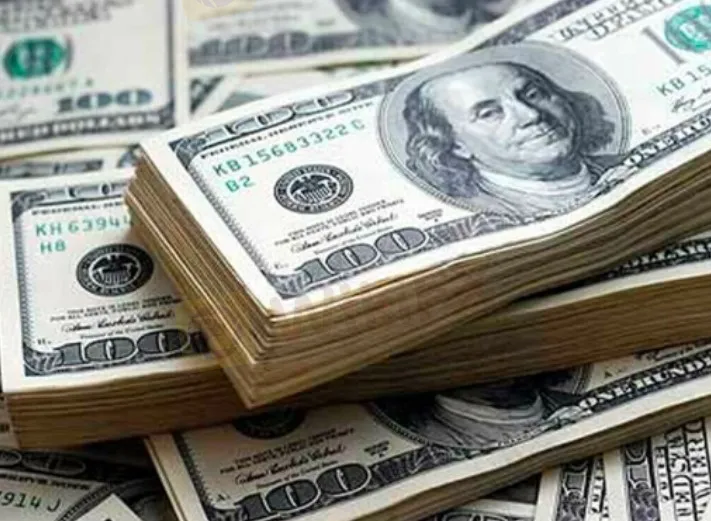简体中文
繁體中文
English
Pусский
日本語
ภาษาไทย
Tiếng Việt
Bahasa Indonesia
Español
हिन्दी
Filippiiniläinen
Français
Deutsch
Português
Türkçe
한국어
العربية
Rising US yields squeeze yen; Macron presidential vote lead aids euro
Abstract:So onwards and upwards for dollar/yen.
SINGAPORE: The dollar stood tall in the Asia session on Monday, helped by inexorably rising US yields, though the euro held its own in relief that the far right did not win the first round of French presidential elections.

The Japanese yen suffered the most selling, briefly touching as low as 125 per dollar and last sitting 0.5% weaker at 124.86. Investors saw little reason to exit bets against the yen while the Bank of Japan holds yields near zero.
Treasury yields, by contrast, are shooting higher. The benchmark 10-year yield added another seven basis points to top 2.77% on Monday as the Federal Reserve readies to cut its asset holdings and move interest rates sharply higher.
“There‘s nothing there to frighten people out of dollar/yen positions,” said National Australia Bank’s head of foreign exchange Ray Attrill. “So onwards and upwards for dollar/yen.”
Nervousness at the economic fallout from deepening COVID-19 lockdowns in China also rippled across markets on Monday, with commodity prices and commodity currencies down along with Chinese equities.
Ten-year Treasury yields topped their Chinese counterpart for the first time in a dozen years and the yuan inched 0.1% lower.
The Australian and New Zealand dollars each fell 0.3%. The euro was a standout gainer and flickered as high as $1.0955 in thin early trade before settling about 0.1% higher than Fridays close at $1.0883.
After breaching 100 on Friday the US dollar index sat at 99.923.
Kerb buying and selling rate of US dollar
With 96% of votes counted in the first round of Frances presidential election, incumbent Emmanuel Macron garnered 27.41% and his far-right challenger Marine Le Pen was next with 24.03%, setting up a runoff contest on April 24.
A Le Pen victory could send shockwaves through France and Europe in ways similar to Britains vote in 2016 to leave the European Union, and relief at the first-round result was soon capped.
“Its a patchy bit of support,” said Westpac strategist Imre Speizer, as investors are also bracing for a European Central Bank (ECB) meeting on Thursday.
The ECB has been weighing rising consumer prices against pressure on growth from war in Ukraine. It is expected to give more details about a wind-down in asset purchases, but may not give any explicit hints about hikes.
A US consumer price report due on Tuesday is expected to show annual inflation at an eye-watering 8.5%, heaping more pressure on the Federal Reserve to move urgently.
Central bank meetings are also due in Canada and New Zealand on Wednesday and interest rate swaps pricing indicates that traders see a more than 90% chance that each hikes rates by 50 basis points.
That could leave both currencies vulnerable if a smaller rate rise is delivered.
The New Zealand dollar was last about 0.3% softer at $0.6831, while the Canadian dollar fell by about the same margin to C$1.2605 per greenback.
Elsewhere, the Australian dollar pulled back in tandem with iron ore prices and touched a three-week low of $0.7418. Sterling slipped 0.15 to $1.3015.
Disclaimer:
The views in this article only represent the author's personal views, and do not constitute investment advice on this platform. This platform does not guarantee the accuracy, completeness and timeliness of the information in the article, and will not be liable for any loss caused by the use of or reliance on the information in the article.
Read more

FED meeting minutes strongly hint at a rate cut in September; US dollar index falls to new low this year!
The U.S. Bureau of Labor Statistics revised down the employment growth in the year ending in March by 818,000, an average monthly decrease of about 68,000, the largest downward revision since 2009. The substantial downward revision of employment data re-emphasized the severity and necessity of the U.S. employment problem, paving the way for a rate hike in September. Bearish for the U.S. dollar.

What new signals does the Federal Reserve have? FED Governor Michelle Bowman reiterates the risk of inflation!
Fed Governor Bowman: There are upside risks to inflation, the labor market continues to strengthen, and a cautious attitude will be maintained at the September meeting. Boston Fed President Collins: If the data is as expected, it would be appropriate to start easing policy "soon". Inflationary pressure will slow down the pace of U.S. interest rate cuts, which will be bullish for the dollar.

GEMFOREX - weekly analysis
The week ahead: Traders on the backfoot ahead of a quiet week

Twin Scam Alert: Broker Capitals is a New Domain of Finex Stock
This week, the Italy financial regulator CONSOB issued a warning against an unlicensed broker named Broker Capitals. When we clicked on Broker Capitals' website, its logo, trade name, and design seemed familiar to us.
WikiFX Broker
Latest News
How Crypto Trading Transforms FX and CFD Brokerage Industry
UK would not hesitate to retaliate against US tariffs - No 10 sources
FCA Warns Against 10 Unlicensed or Clone Firms
CySEC Warns Against 14 Unlicensed Investment Websites
Top Currency Pairs to Watch for Profit This Week - March 31, 2025
Will natural disasters have an impact on the forex market?
Philippines Deports 29 Indonesians Linked to Online Scam Syndicate in Manila
Navigating the Intersection of Forex Markets, AI Technology, and Fintech
Exposed: Deceptive World of Fake Trading Gurus – Don’t Get Fooled!
AI-Powered Strategies to Improve Profits in Forex Trading
Currency Calculator







